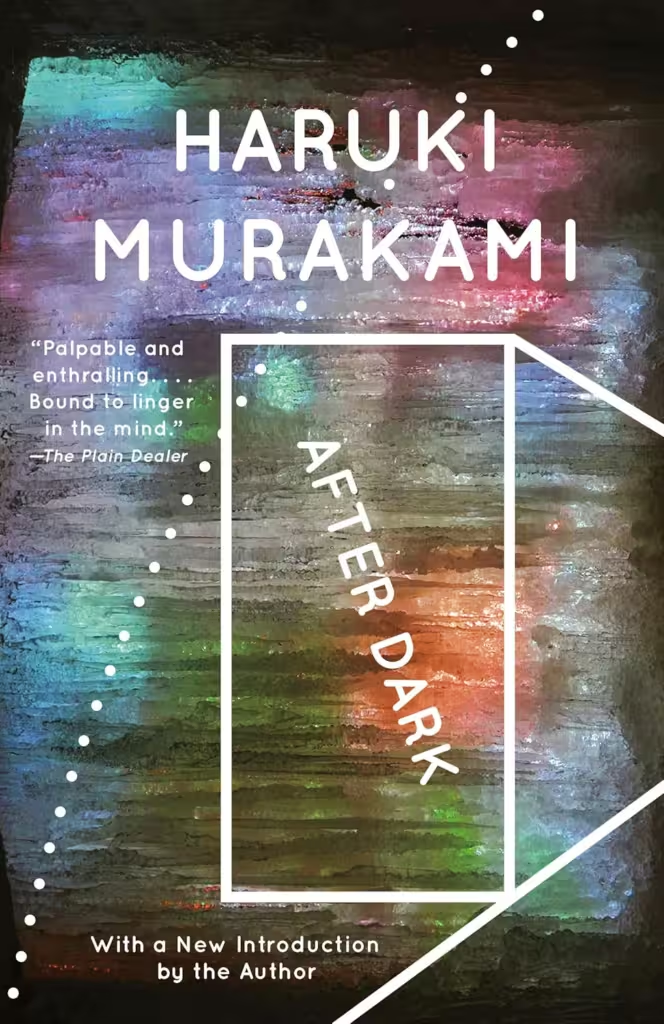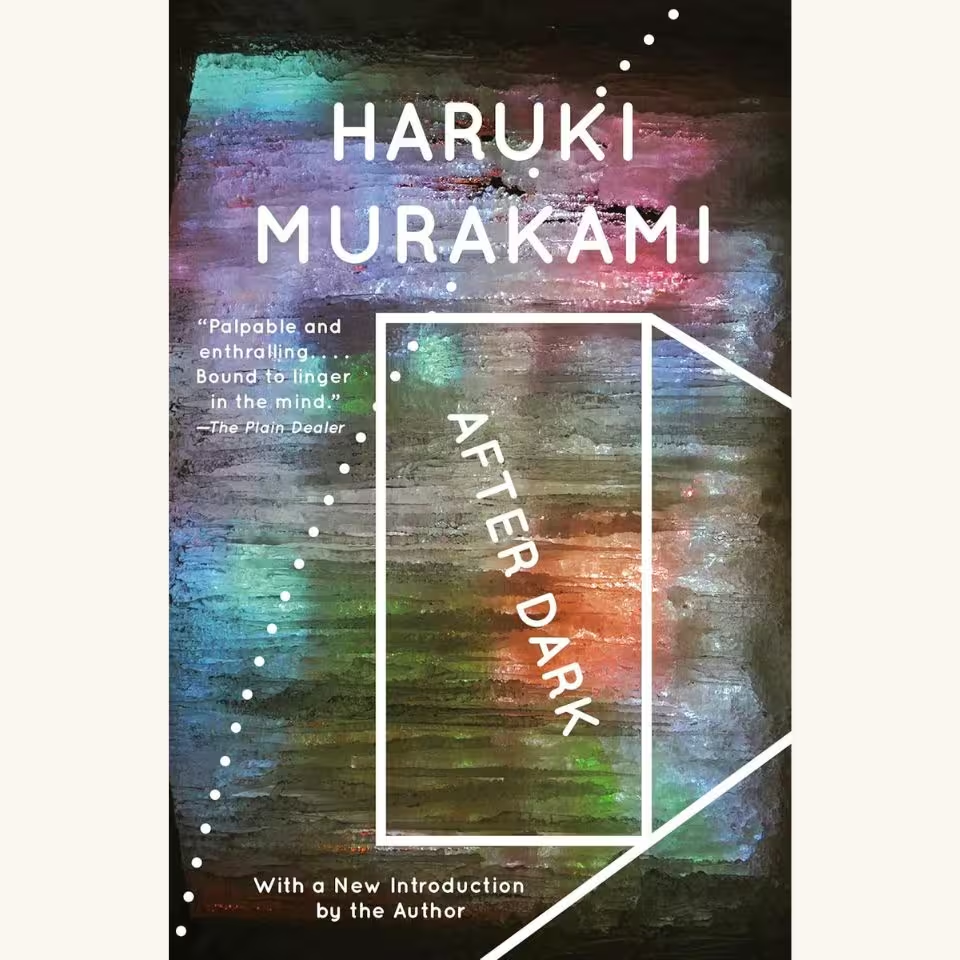Haruki Murakami’s After Dark is a nocturnal exploration of Tokyo’s underbelly. The real and surreal blurs as the clock ticks towards dawn. The novel unfolds over the course of one night. It begins by introducing us to Mari Asai, a 19 year old student, who finds herself drawn into a series of unexpected encounters starting in a Denny’s restaurant. As the night progresses, Mari crosses paths with a diverse cast of characters: Takahashi, a budding musician, and Kaoru, the manager of a love hotel.
Between these real-world interactions, Murakami also introduces us to the mysterious storyline of Eri Asai, Mari’s beautiful sister. Eri has been sleeping for two months. The narrative shifts between the stark and vibrant Tokyo after dark and the eerie stillness of Eri’s room. Here, the lines between dreams and reality blur. Television screens flicker ominously, and reflections in mirrors seem to live lives of their own. It suggests of a parallel universe that is both fascinating and unsettling.

Get a copy of After Dark by Haruki Murakami from your favourite seller:
Review
Murakami is celebrated for his talent in merging the real with the surreal, and “After Dark” is a testament to this skill. The idea of a hidden world behind the TV or mirror is captivating and full of potential. However, the novel’s execution sometimes feels lacking. For instance, the lingering shadows in mirrors after characters have departed create suspense and intrigue but ultimately lead to unanswered questions, leaving readers craving more resolution.
Moreover, the book’s tone appeared notably sexist, especially in scenes involving Takahashi. His unsolicited late-night conversation with Mari is unsettling. Despite Mari’s obvious disinterest, Takahashi persistently imposes his presence and conversation on her, resembling more of a monologue than a genuine dialogue. Red flag alert! This interaction only shows his disregard for her boundaries.
The most authentic dialogue occurs between Mari and another female character, Korogi. Their interaction forms the emotional heart of the story, offering a refreshing break from the Takahashi “monologue.”
Conclusion
After Dark is a novel that is part of Murakami’s signature style of blending the ordinary with the extraordinary. However, it feels like an unfinished symphony, especially with its loose ends and troubling character dynamics. I wouldn’t recommend this novel for first time Murakami’s reader. My review reflects both appreciation for his artistry and disappointment in the narrative’s execution.
About the Author
Haruki Murakami was born in Kyoto in 1949 and now lives near Tokyo. His work has been translated into more than fifty languages, and the most recent of his many honors is the Yomiuri Literary Prize, whose previous recipients include Yukio Mishima, Kenzaburo Oe, and Kobo Abe.
Author: Francesca Ropa
Miserable is only a concept. Writes fictions and human interest stories. Days spent in rugged Middle Earth.The Haptic Room is supported by our readers. Our site may contain links to affiliate websites, and if you make a purchase through these links, we receive a commission to support our site.

